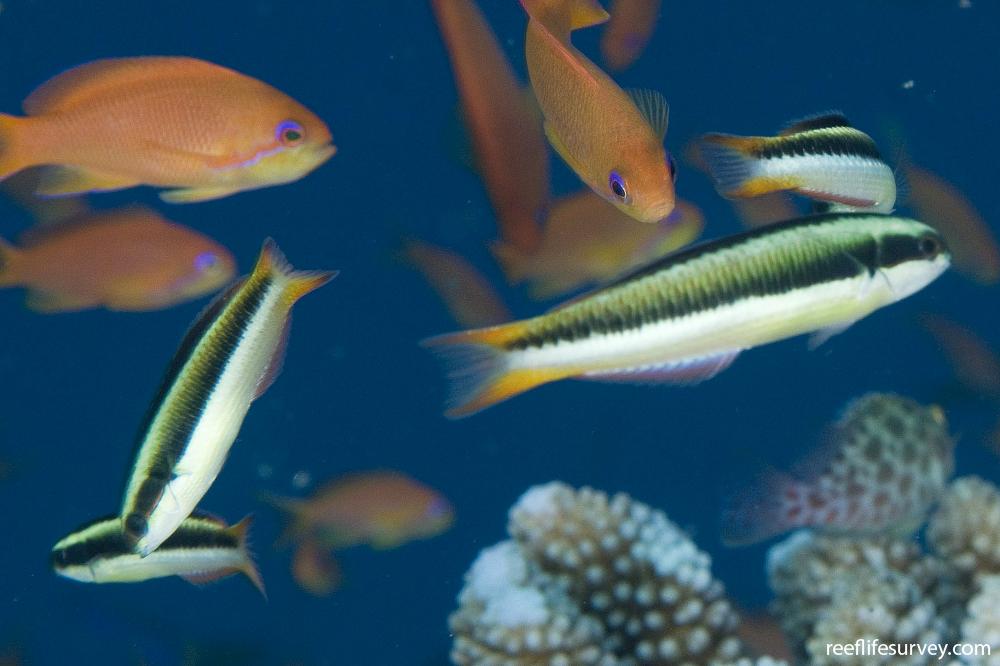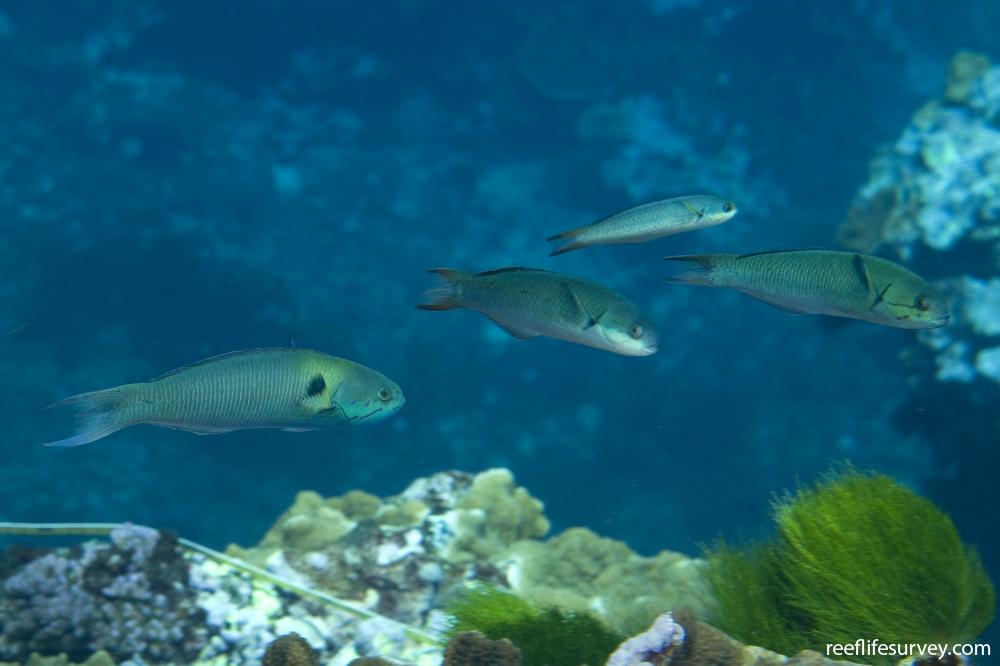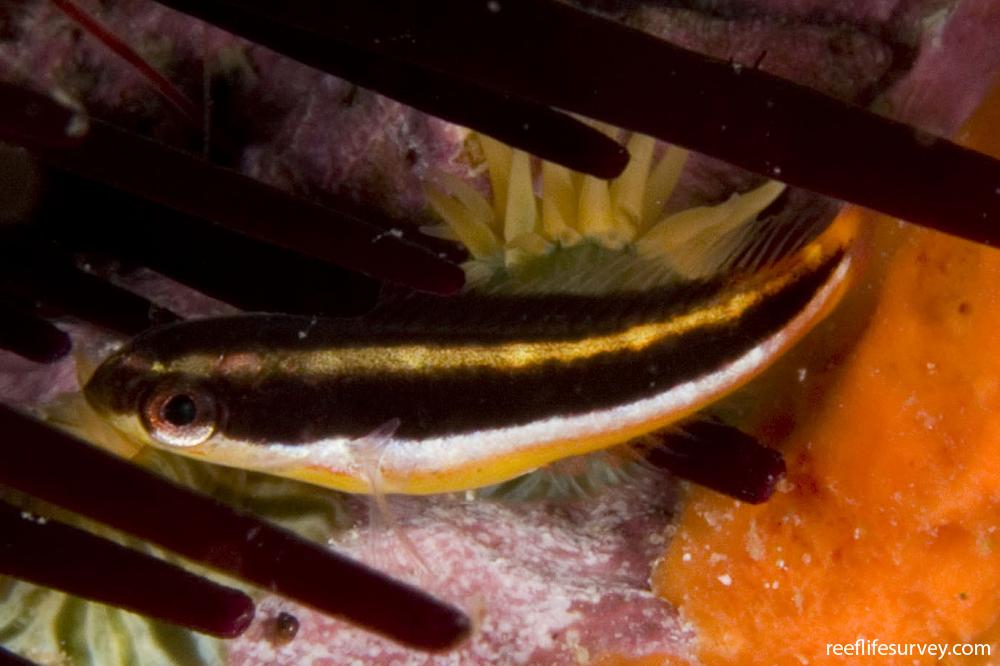Thalassoma amblycephalum
Two-tone wrasse | Bluehead Wrasse | Bluntheaded Wrasse | Rainbow WrasseSimilar Species
Same Genus
Distribution
Temperate Australasia, Tropical Indo-Pacific
Description
Brightly coloured male more slender and more lunate tail than other Thalassoma species. Juveniles school close to coral, distinguished from numerous similar small wrasses by gold colour on upper and lower tail base and tail.
Information
Max Size: 16 cm
Sea Temperature Range: 19.1-31.2°C
Depth: 1-15 m
Habitat Generalization Index: 22.92
Also referred to as the SGI (Species Generalisation Index), this describes the habitat niche breadth of the species. Species with values less than 15 are found in a relatively narrow range of reef habitat types (specialists), while those over 25 may be found on most hard substrates within their range (generalists). Learn more here.
Conservation and Rarity
IUCN Status: Least Concern
Occurrence: Common (31.0% of sites)
Occurrence describes how often the species is found on surveys within its distribution. It is calculated as the % of reef sites surveyed by RLS divers across all the ecoregions in which the species has been observed
Abundance: Many (39 per transect)
Abundance is calculated as the average number of individuals recorded per RLS transect, where present.
Edit by: RD Stuart-Smith, GJ Edgar, AJ Green, IV Shaw. 2015. Tropical Marine Fishes of Australia. Reed New Holland































